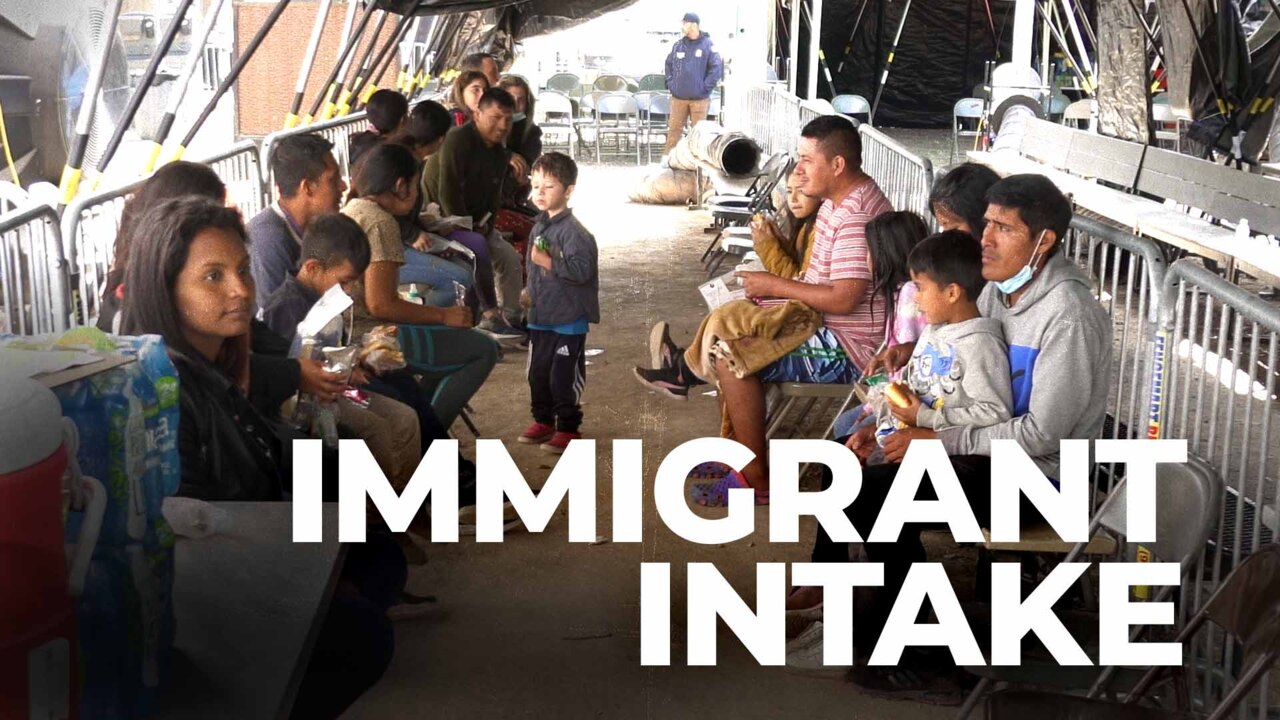
In downtown El Paso, Texas, migrants take their first steps into America. They’re looking for an opening in the fence, so they can turn themselves in, to border patrol. And they’re not alone. Hundreds wait in Juarez at the bank of the Rio Grande river.
“Queremos trabajar, queremos trabajar”
We want to work, they chant. But because of new rules from the Biden administration, they’re unlikely to cross successfully. On October 12th, the Department of Homeland Security announced that all Venezuelans who cross illegally will be sent back to Mexico. The U.S. will also work to bring in up to 24,000 Venezuelan immigrants who have a financial sponsor, pass a national security screening and complete a series of vaccinations and other health requirements.
Those who do cross turn themselves in at this Border Patrol mobile processing center. Nearly 2,000 people a day come through here hoping to start a life in the United States.
At step two of the mobile processing center, immigrants are put into three different rows, one for families and unaccompanied children, one for single adults, and another for single adults from Nicaragua, Venezuela and Cuba.
From there the migrants are given food, any necessary medical treatment, a fingerprint and retinal scan and have their documents authenticated. This family from Ecuador said the journey took nearly a month.
Querli and Jose Louis: “They were extorting us, they asked for money and if we didn’t pay they would kill one of our children.”
They say they have a friend in the states they can stay with.
Querli and Jose Louis: “We want to be here because we feel much safer here. We want to work, and keep moving forward without fear that they will kill one of us.”
From the mobile processing center, migrants who aren’t deported may ultimately end up at this county welcome center. It helps migrants coordinate transportation to family or sponsors in other areas of the country, but doesn’t pay for it. According to County Commissioners, 99% of the immigrants who enter El Paso do not stay.
Commissioner Stout: “At this point, we’re receiving about 100 folks on a daily basis. These are single adults that do have actual sponsors or do have, you know, somebody who’s helping them.”
Commissioners on county court voted unanimously to approve the welcome center.
Commissioner Stout: You know, as they’re being admitted into the United States, as they’re seeking asylum, it’s important for us to do the best that we can to to try to. Help them, welcome them and and make sure that they’re taken care of, that they’re treated in the most humane way possible.
It’s a one year contract at a cost of 6.9 million dollars plus 146,00 to lease the building. There’s an option for a second year if necessary. They say they’ve already received the check from FEMA to pay for everything through December.
Commissioner Stout: “we have been talking to the federal government for many, many years and letting them know, look, we should not be forcing local taxpayers to pick up the, the burden, the financial burden of this federal issue and and so. Of course, when the federal government is finally responding and saying we are going to make sure that you are reimbursed for The expenditures,.. it makes it a lot easier for us to have that unanimous decision.”
But money aside, Stout says El Paso is a welcoming, pro-immigrant community that will work to ease the burden on families like Querlie and Jose Louis.










